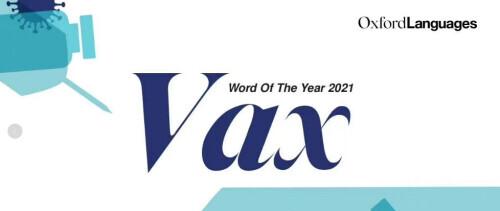
On November 1, local time, the Oxford English Dictionary announced that the annual vocabulary for 2021 is "vax", which is the abbreviation of "vaccination" (vaccine).
Oxford University Press said in a statement that the term was rarely used until 2021, but as of September this year, the word "vax" was used 72 times more than in the same period last year. People not only use the word every day, but also as an adjective or verb.
For example, the Oxford Dictionary cites words derived from the vaccine abbreviation "vax", such as "vax-pass", "vax-card", "vax-site", "fully vaxxed", "getting vaxxed" and "anti-vax".
The Oxford Dictionary also points out that the world's hot debate about vaccines in 2021 also provides a reason for this choice. "This year, our report also examines, for the first time, the impact of vaccine languages on languages other than English, and looks at the most used languages worldwide," the editors wrote. ”
According to The New York Times, 58 percent of U.S. residents have been vaccinated against COVID-19. Nearly 70% of people aged 18 and over have been fully vaccinated. Worldwide, about 50 per cent of the population has been vaccinated with at least one dose.
At the beginning of the 2020 outbreak, the Oxford Dictionary selected a series of words as the annual vocabulary for 2020. According to the Oxford Dictionary, they can't summarize 2020 in a single word. As a result, the Oxford Dictionary launched its first "annual vocabulary", which included words such as "coronavirus" and "lockdown" related to the epidemic, "bushfires" that ravaged Australia in early 2020, the anti-racist slogan "black lives matter" that spread across the United States, and "mail-in" related to the US election. Casper Grathwohl, then president of the Oxford Dictionary, called it an unprecedented year in linguistics.
Source: Wen Wei Po